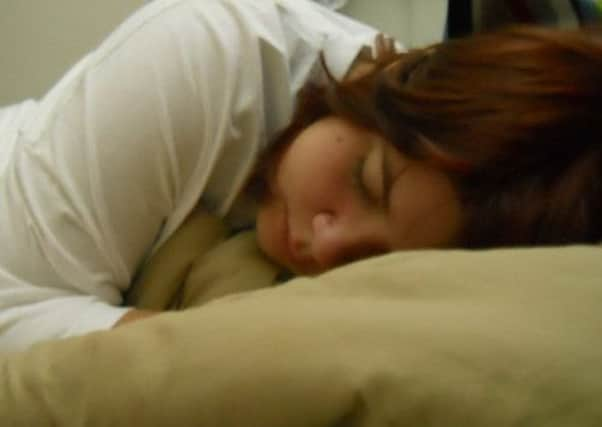Insomnia drug ‘safer for pensioners’


Circadin, which was part of a trial of 1,000 Scottish patients, uses a slow-release form of the hormone melatonin to regulate sleeping patterns and help return patients to a more normal routine.
But despite getting its licence in 2007, those who helped test the drug said its use was not widespread as patients and doctors preferred the instant effect of the traditional soporific pills, despite the risk of serious side-effects.
Advertisement
Hide AdAdvertisement
Hide AdThe most commonly prescribed treatments for insomnia in the UK are benzodiazepines, such as temazepam, and so-called “Z drugs”, such as zopiclone and zolpidem.
However, these treatments can cause drowsiness during the day, particularly in older people who are already at increased risk of falls. They can also lead to drug dependence.
Many believe that a treatment containing melatonin – a hormone produced by the body to control sleeping and waking patterns – could help reduce the risk of more serious side-effects and act as an alternative to the traditional drugs.
Circadin, the only melatonin-containing treatment approved in the UK, is licensed for use in people over 55 whose body clocks have been knocked off course to help them regain normal sleeping patterns.
But researcher Alan Wade, from CPS Research in Glasgow, who helped test Circadin, said despite the benefits the trials found, it was still used rarely by doctors in Scotland.
Almost 500,000 prescriptions for zopiclone were handed out in 2011-12, compared with fewer than 10,000 for melatonin.
“I think the problem why it’s not being widely used is because of expectations and managing people’s expectations,” Wade said.
“If you go along to the doctor and you say I’m not sleeping, they give you a sleeping pill. Your expectation of a sleeping pill is that you will take it an hour before you go to bed and it will knock you out and you won’t remember anything until the next morning when you wake up.
Advertisement
Hide AdAdvertisement
Hide Ad“That is what you want from a sleeping pill and is your expectation. It is also the expectation of the doctor at the moment, because they don’t understand enough about the way melatonin works. I think this is a real problem.”
Wade said patients undergoing melatonin treatment may take the pills for a short time and stop using them when they fail to work instantly.
But he said the message that needed to be communicated was that melatonin would help if taken for a longer period – around three weeks – and in conjunction with other lifestyle changes.
Wade said the melatonin treatment was not expensive, at around 50p a day, but other sleeping pills were even cheaper at just a few pence.
This meant it could be difficult to persuade NHS watchdogs such as the Scottish Medicines Consortium (SMC) to recommend the drug, even though it could substantially reduce the risk of falls in older people.
“It is not an expensive drug at all,” he said. “It is not a huge amount of money if you prevent someone getting a fractured hip. But it does rely on the fact patients understand what they are getting. There is really a love affair with benzodiazepines.”
Chris Idzikowski, a sleep expert from the Edinburgh Sleep Centre, said research was needed to find out why there was not greater use of melatonin drugs.
“Part of Circadin’s action is through the biological clock, and it takes a few days for the clock to be reset and for the patient to appreciate the change, unlike the older sleeping pills where the patient will invariably detect an effect straight away,” he said.
Advertisement
Hide AdAdvertisement
Hide Ad“The better longer-term outcomes, though, tend to be with the slower treatments – cognitive behavioural therapy for insomnia, possibly antidepressants, and Circadin.”
A spokesman for Age Scotland said: “As falls account for seven in ten fatal accidents in people aged over 65, and more than half of all injuries, any side-effects of sleeping treatments that make falls more likely need to be taken seriously.
“Older patients and GPs should be made fully aware of risk factors associated with drowsiness, so that they can make informed choices with regard to sleep-related prescriptions.”
While doctors are free to prescribe treatments once they have been licensed for use in the UK, some are reluctant to do so without recommendation by the SMC. Flynn Pharma, which markets Circadin in the UK, has yet to submit the drug for assessment by the SMC, meaning the drug has not been recommended.
The company said: “Flynn took over marketing the product in 2012 and is aware of the important role of SMC in issuing advice as to the economic case for drug treatments.
“Flynn is undertaking a number of studies to develop an economic model for the use of Circadin.”
Twitter: @LyndsayBuckland